Many people believe that the biggest fear in a post SHTF situation is going to be starvation or attack from our fellow human beings, but the likelihood of mass death by disease in the aftermath of disaster is a much more terrifying probability.
Think about it for a minute: if you’ve prepared for long-term survival either independently or with a group, you’ve likely got a defense plan in place, too. This includes invasion from desperate people who didn’t prepare, or from other enemy forces.
These desperate people are going to starve off or kill each other off quickly if they don’t ingratiate themselves to a sympathetic group post-haste.
Either way, that threat will be neutralized in a few months or less. Starvation won’t be an issue for you as long as you manage to defend your stockpile.
So what, then, is going to be the next biggest threat? Disease, according to those who’ve thought about it.
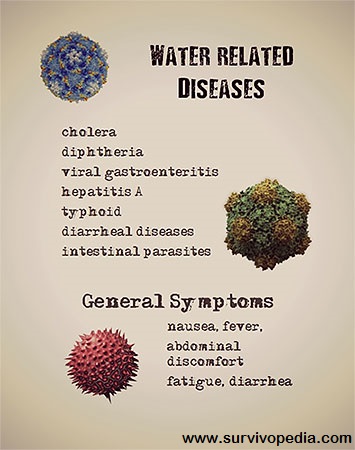 Poor Water Sanitation
Poor Water Sanitation
Illness is easily spread just by drinking contaminated water. Poor water sanitation is going to be the source of many diseases to fear in the aftermath of disaster.
In a SHTF situation, sewers are going to contaminate water supplies. Just one person improperly disposing of waste can contaminate the water within up to a 50-mile radius.
This will cause outbreaks of cholera, diphtheria, viral gastroenteritis, hepatitis A, typhoid, diarrheal diseases and intestinal parasites.
Unfortunately, most people won’t know how to properly sanitize water prior to drinking it and will most likely not know that these diseases can be contracted by bathing in contaminated water, as well. Don’t skip this step in your disaster preparedness.
Know how to purify water and have the equipment to do so.
Diseases and Infections of the Respiratory System
Illnesses and diseases such as the tuberculosis, whooping cough, flu, colds, bronchitis and pneumonia will kill millions and spread like wildfire.
They’re air-born and easily spread through even minimal physical contact. One person coughs into his hand, then shakes hands with somebody and BAM – he’s just spread his disease.
Many of these illnesses aren’t necessarily lethal to healthy adults but they can easily kill kids and the elderly. It will be imperative that you monitor all of your people closely and sequester them if symptoms appear.
Also, we would recommend quarantining any new people that you allow into your group for at least a week. This isn’t a time to be nice – it’s a time to survive.
Diseases Carried by Insects
Malaria, West Nile Virus, Lyme’s disease, Murine typhus and even the plague are spread via insects and vermin such as mosquitos, fleas, ticks, and rats.
Though these are lethal, the good thing is that most of them are fairly easy to avoid with good sanitation practices. Don’t let water stand so that it can attract mosquitos, keep your living area clean so that it doesn’t attract rats, and do what you can to prevent fleas and ticks.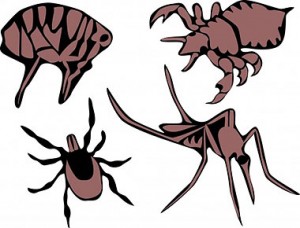
Infections
What do you do if you cut your foot on a rusty nail? You think back to when you had your last tetanus shot, of course! If you’ve had one in the last 10 years, you monitor the wound for infection and keep it clean.
If it gets infected, you take antibiotics. Uh-oh. Tetanus shots and antibiotics most likely aren’t going to be available in a post-SHTF scenario and you should assume that strange water sources are contaminated, so now what?
Infections lead to such conditions as gangrene and sepsis and can be fatal. It’s going to be crucial in a SHTF scenario that you take extreme care of any type of wound in order to avoid infection. In this case, an ounce of prevention will be worth a pound of cure!
There are also some conditions related to malnutrition such as rickets and diarrhea that will be of concern, but these are the major ones that are the most likely to get you.
Not to be an alarmist, but we know for certain that our government keeps viruses for warfare and pharmaceutical companies have bugs quarantined in the interest of research. What happens to these bugs if some unsuspecting soul opens those coolers looking for food or supplies? That’s another scare altogether, but it’s one that is within the realm of possibility.
The best way to avoid any of these conditions is proper sanitation and segregation of the sick. Be careful when speaking to strangers, don’t share drinking or eating vessels or utensils, don’t drink from or bathe in questionable water sources, and wash your hands frequently.
Rest assured, these are just some of the diseases to fear in the aftermath of disaster. Just as with everything else, though, all we can do is our best. Knowledge is power, and we hope we’ve helped with that!
This article has been written by Theresa Crouse for Survivopedia.
Photo sources: 123RF.com.


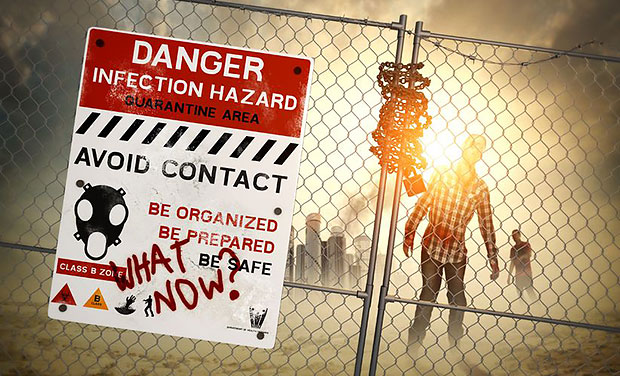


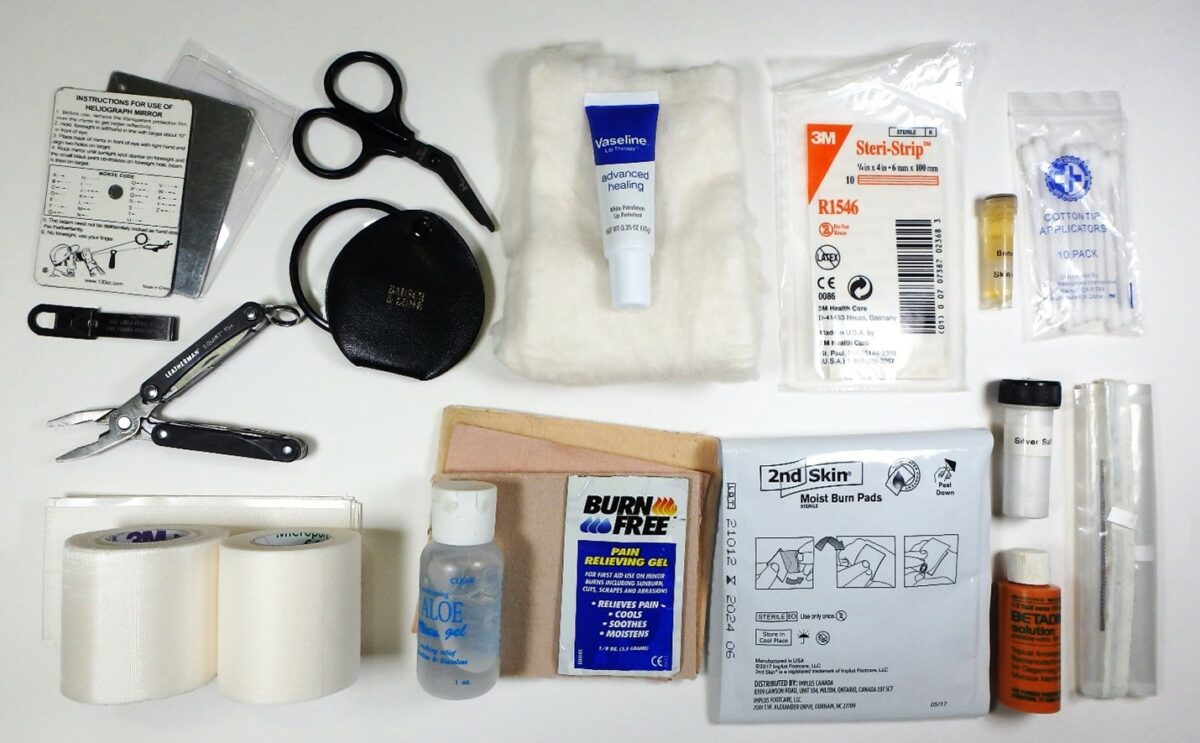
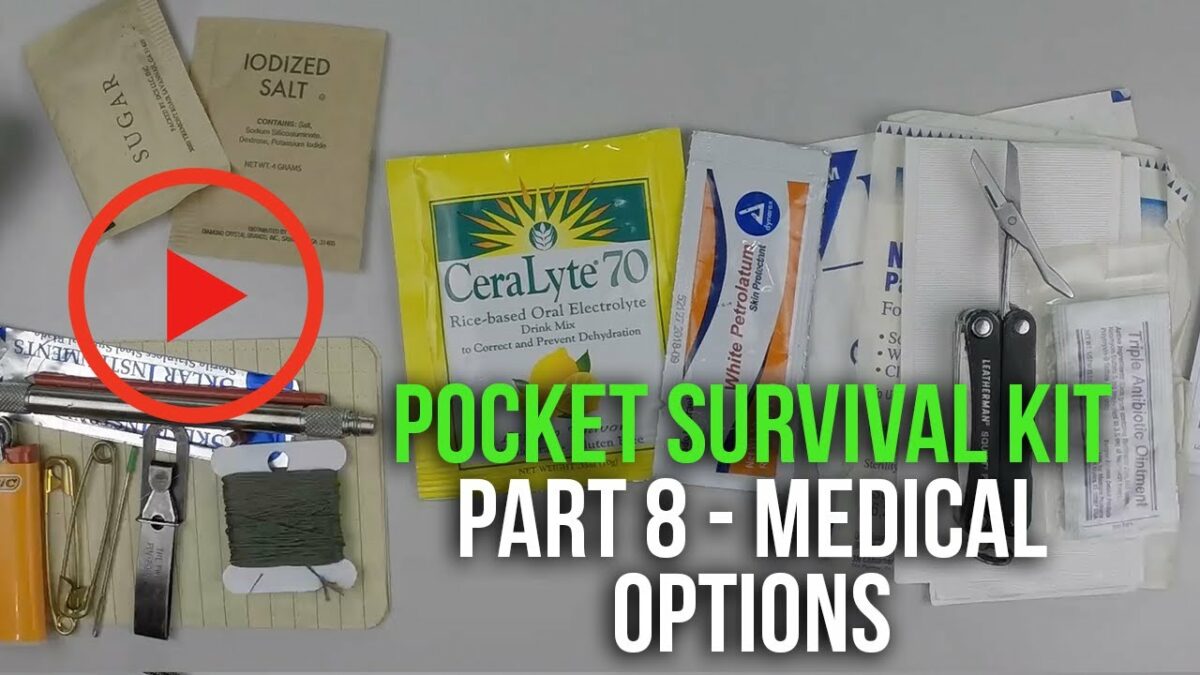
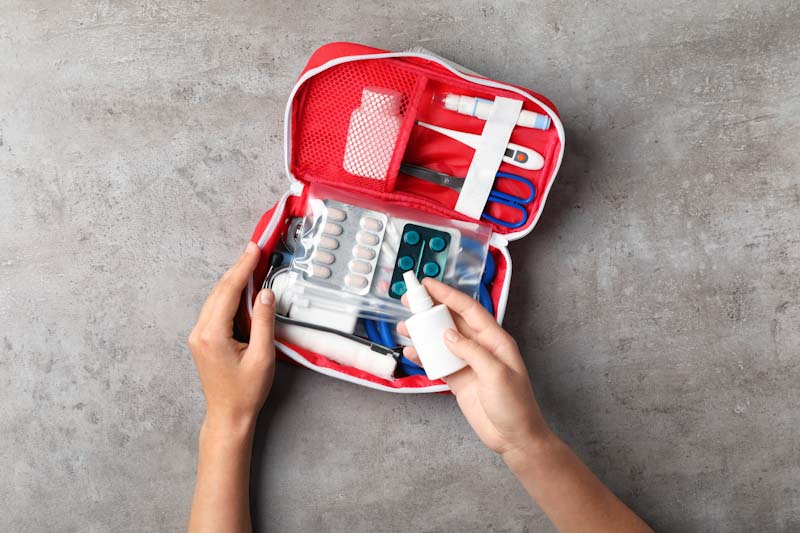

Jimmy Scott,Ph.D. | February 17, 2014
|
Years ago a UK hospital had a record of an average of one death per year from tetanus and had never gone more than 3 years without a death from tetanus. They stopped giving tetanus vaccinations. After 8 years they looked at their data and found that during those 8 years they not only never had a death from tetanus but never even had a case of tetanus. Yet another example of disease caused by vaccination. Having studied the real scientific literature I personally will never have any vaccination for any reason. BTW, it was known by 1950 that antibiotics impair the immune system. Keep, and use daily, a good supply of Vitamin D, Calcium Citrate, and Fish Oil. The three work together to help keep those killer white blood cells functioning.
JayJay | February 19, 2014
|
And take triple dosage of vitamin D in the winters.
Those night time muscle spasms have returned, so I have upped my intake.
Pingback:Diseases to Fear in the Aftermath of Disaster | February 18, 2014
|
Pingback:Diseases to Fear in the Aftermath of Disaster | TheSurvivalPlaceBlog | February 18, 2014
|
Pingback:Diseases to Fear in the Aftermath of SHTF - SHTF Preparedness | February 19, 2014
|
jimmy b | February 8, 2017
|
Water purification systems are worth their weight in gold. I have the alexapure water system & extra filters to keep on hand just in case. One good idea to have no matter what is a sealed well or water storage tanks. Both of these can be used if it ever does hit the fan & you can also water your plants durning the hot months to conserve water. Several of my neibors & i grow gardens this way we keep good supplies of food & can swap with each other. You can buy seed vaults and share with neibors which is what i do, if you spread out who grows what you dont have to worry about anyone comming in and stealing all of your food.
Pingback:DIY Project: How To Make A Bug Catcher | Survivopedia | November 10, 2017
|
Pingback:How A Small Bug Can Kill You | Survivopedia | May 4, 2019
|